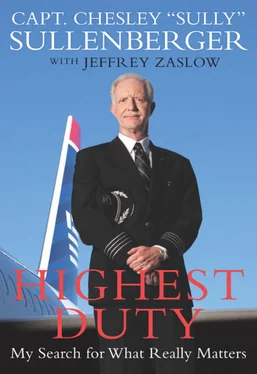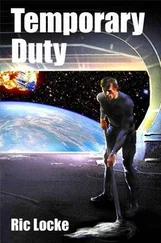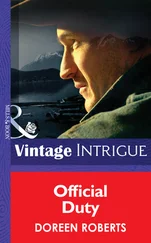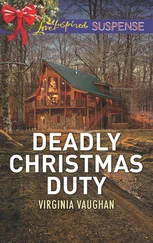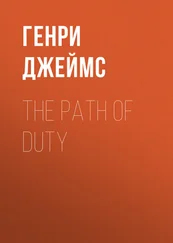This idea that “anything is possible” has been a bit of a mantra in my adult life, especially in my marriage. Lorrie reintroduced me to those words. And at the same time, my father’s example remains there in the back of my mind, showing me the way.
That’s not to say I always fully embraced my father’s sense of the possibilities. On Saturdays, when my sister and I would have loved to sleep in, he’d wake us up at 7 A.M. so we could get an early start on whatever the latest expansion was. We’d work until lunchtime and then he’d suggest that we take a nap so we’d have the energy to get back to work later in the afternoon.
Even if we couldn’t fall asleep, we pretended, so he wouldn’t send us back to work right away. “Just keep your eyes closed,” Mary would whisper to me. “He’ll think we’re still sleeping.”
Though we dragged our feet at times, I did feel I had a stake in all of the construction work. I wanted to do a good job so all the additions would look right. Even in grade school and junior high, I felt committed to getting the masonry right, because I’d have to look at it every day. Also, I didn’t want my friends to come over and notice that I lived in a place built by a bunch of amateurs.
The house was a source of pride, but I also felt a bit of embarrassment. Sometimes I’d brood, wishing we lived in a professionally built house like everyone else. I told myself that when I grew up, I’d live in a house where all the floors were completely level, where all the joints were square. To save money, my father also kept the heat low in the winter. I vowed to live in a house where it was never cold.
And yet, despite my mostly unvoiced complaints, I knew that working on the house was a special experience. Each time the place grew, I felt a sense of accomplishment. The house expansion was a tangible activity, not theoretical or intellectual. We saw the progress we made. We’d put in long days, especially in the summertime, but by nightfall, we could see that things were different from when we started in the morning. I liked that.
I’ve always liked seeing results. One chore I never minded doing as a boy was mowing the grass on our half-acre lot. When I was halfway through mowing, I knew how much I had left to go. When I was finished, I could tell I’d made a difference. The lawn looked neater. Flying for an airline offers equal satisfaction: We’re halfway there. We’ve landed. We’ve completed our job.
MY GRANDPARENTS were all born between 1885 and 1893. All four attended college, which was especially remarkable for my grandmothers, given the times they lived in. My grandparents raised both of my parents with the belief that schooling was paramount, but that a lot also could be learned outside of formal education.
My father was born in 1917 and kept a journal when he was a teen that he later allowed me to read. The Depression became vivid to me as I paged through all of his journal entries. Money was always an issue, and he had a series of overlapping jobs in high school. He’d balance his schoolwork with two paper routes and duties as a movie-theater usher.
My grandfather would sometimes run out of money at the end of the month, and he’d borrow money from my father. In his journal, my father chronicled his pluckiness, describing how he’d find ways to cope in hard times. When he had a little bit of money and could eat at the local diner, he’d order a bowl of chili and fill it with saltines and ketchup to make it a more substantial meal. It kept him from going hungry.
Reading my dad’s diary, I got to better understand his worldview. It was a reminder of how much easier things were for my generation. I understood why my dad kept the heat turned down, and his kids hammering away at the house. Those with the Depression-era mentality never could quite shake it.
My dad ended up going to Baylor College of Dentistry in Dallas, graduated in June 1941, and decided to join the Navy. This was six months before Pearl Harbor was attacked.
He had always liked airplanes, and hoped to become a naval aviator. He even passed the rigorous physical exam. But then, at the last minute, he decided that since he had been trained in dentistry, perhaps he’d serve his country best as a dentist. It was a fateful decision. He entered the service with friends who did go on to become Navy pilots. They were killed in the fierce fighting early in the war. My father always assumed that if he had become an aviator, he would have been shot down with them.
He was stationed as a dental surgeon first in San Diego and then in Hawaii. He never was in combat, but plenty of men who saw the worst of it took their seats in his dental chair. Between 1941 and 1945, hundreds of those who’d been in battles told him their stories as they passed through Hawaii.
He took his work as a military dentist very seriously, and he learned things from the men who came through his dental office, especially the officers. When I was a boy, he would talk about the great obligations of a commander to look after every aspect of everyone’s welfare who served under him. My dad made it clear to me how hard it would be for a commander to live with himself if, through lack of foresight or an error in judgment, he got someone hurt or killed.
When I was a boy, he impressed upon me that a commander’s job is full of challenges, and his responsibilities are almost a sacred duty. I kept my father’s words with me during my own military career, and after that, when I became an airline pilot, with hundreds of passengers in my care.
My dad left the service as a full commander, and after World War II, he opened a dental practice in Denison. He loved talking to patients, and listening to what they had to say when his hands weren’t in their mouths. But he wasn’t much of a businessman. He had no ambition to run a large practice with a half-dozen associates, or to slave away for more than thirty-five or forty hours a week. Money didn’t motivate him, and he never made too much or managed it particularly well. He didn’t need a lot of material things, and figured we didn’t either. Paying for my flying lessons was an indulgence, but he thought my time learning to fly with Mr. Cook gave me a sense of purpose and a path into the future. He was happy to find the money for that.
Unlike a lot of men of his generation, my dad thought of being with his family as his priority; work was secondary. I wouldn’t say he was without ambition—after all, he built his own house—but he was content making less money if that meant he could spend more time with us.
It was almost as if he wasn’t in dentistry to earn a living. A lot of the nuns from the local Catholic school were his patients. Sometimes they had the money to pay him, sometimes they didn’t. He had other patients like that. Some people didn’t get charged. Some didn’t get charged much.
My father could also be a bit whimsical and impulsive. Or perhaps, as I’d later suspect, he was just looking for ways to brighten days when he was weighed down by darker moods. In any case, some mornings he’d wake up and say to my mother, “I don’t feel like working today. Let’s go to Dallas.”
My mom would get on the phone and cancel all his patient appointments, then she’d call our school to say we wouldn’t be coming in. My father figured my sister and I were smart kids; we could make up any missed schoolwork. And besides, he felt we could always learn something down in Dallas.
It was exciting. The whole family would drive the seventy-five miles listening to Top 40 songs on KLIF-AM on the car radio. When we got to Dallas, we’d see a movie and have an inexpensive dinner together.
We always stayed at the same little roadside one-story motel, a typical fifties-era row of rooms right off the freeway: the Como Motel. We’d swim in the small swimming pool in the middle of the parking lot. And we always ate at a Mexican restaurant called El Chico. Every meal, no matter what you ordered, came with rice and beans. I’d always get the cheese enchiladas, which I loved because of the diced onions inside.
Читать дальше
